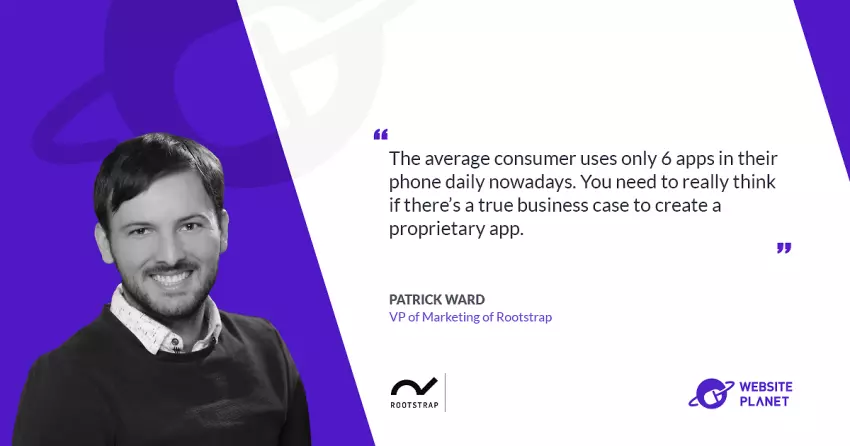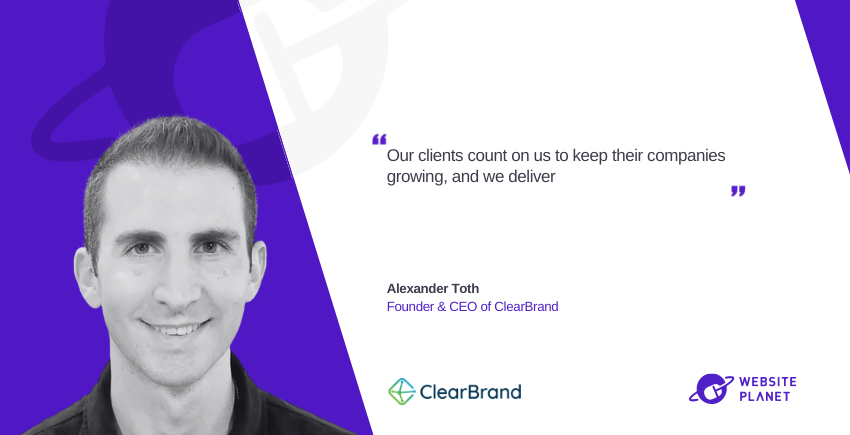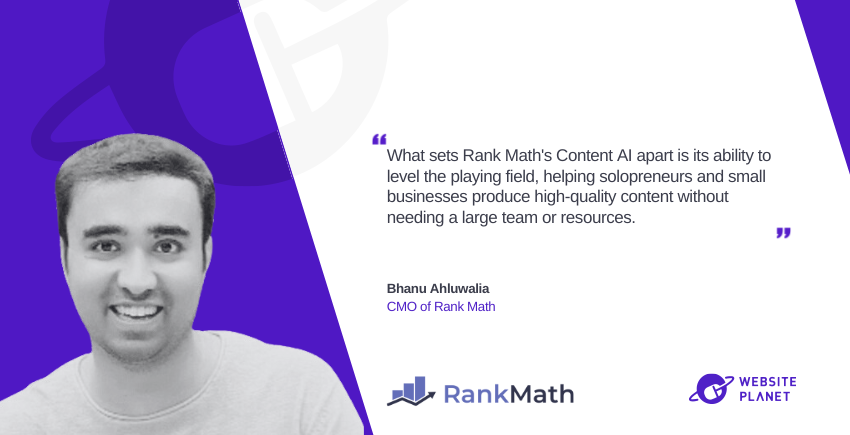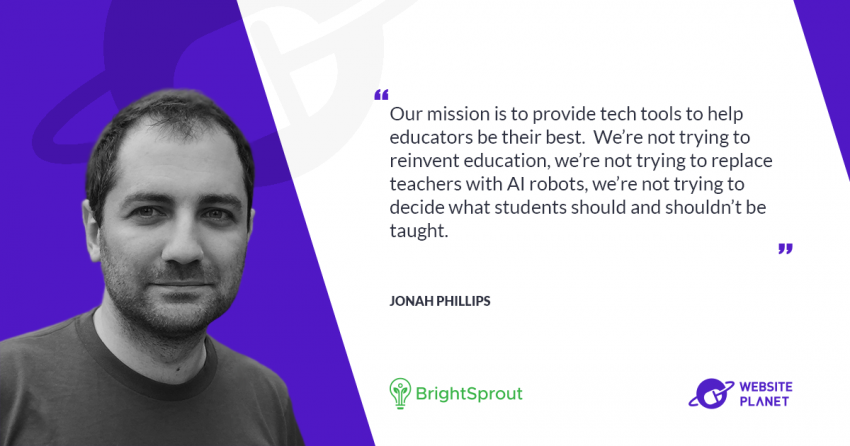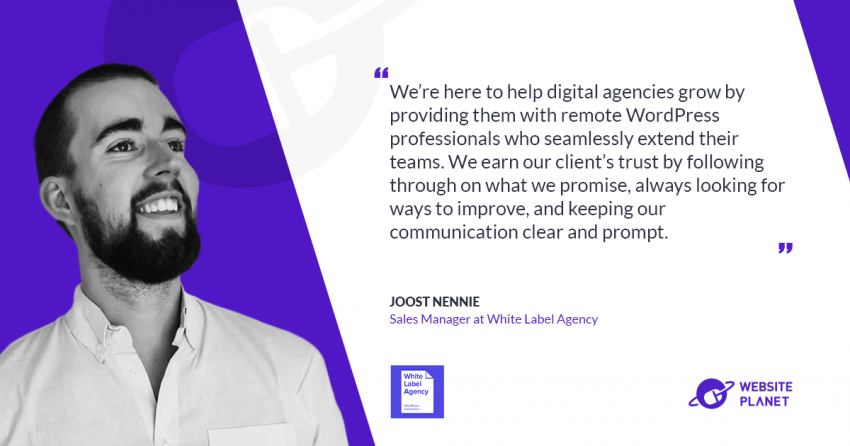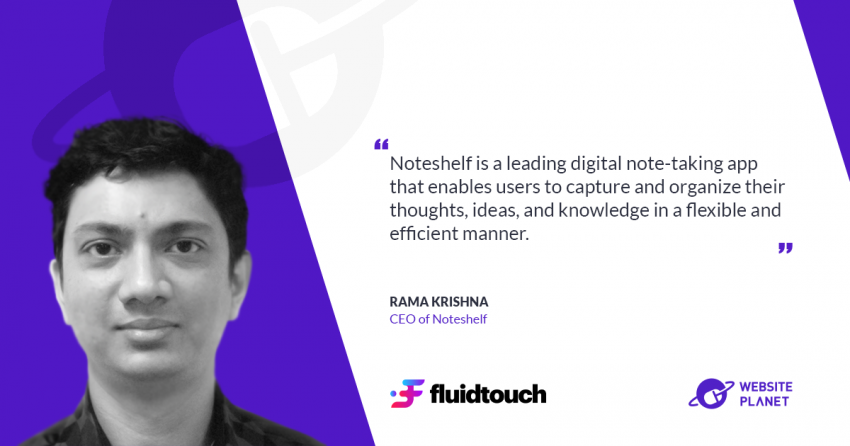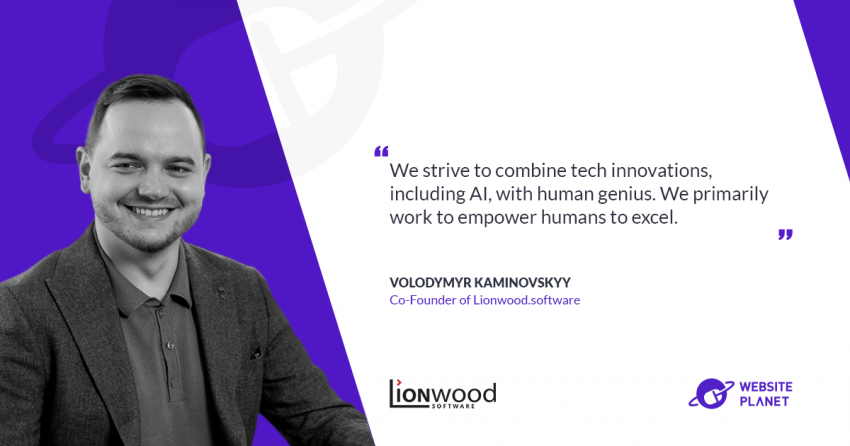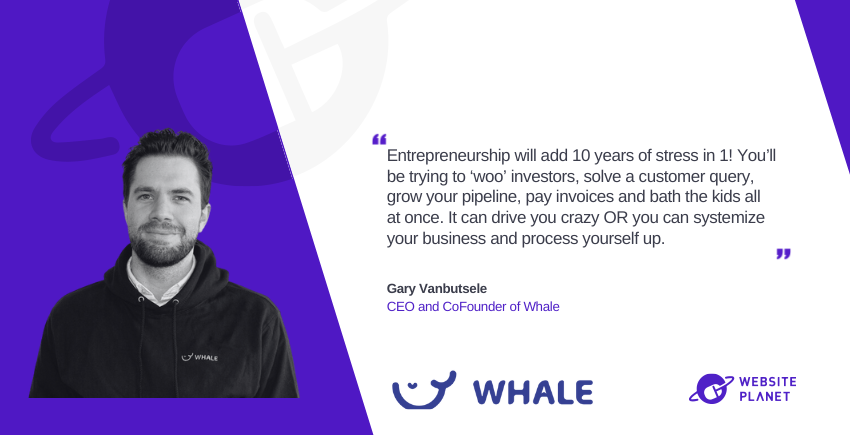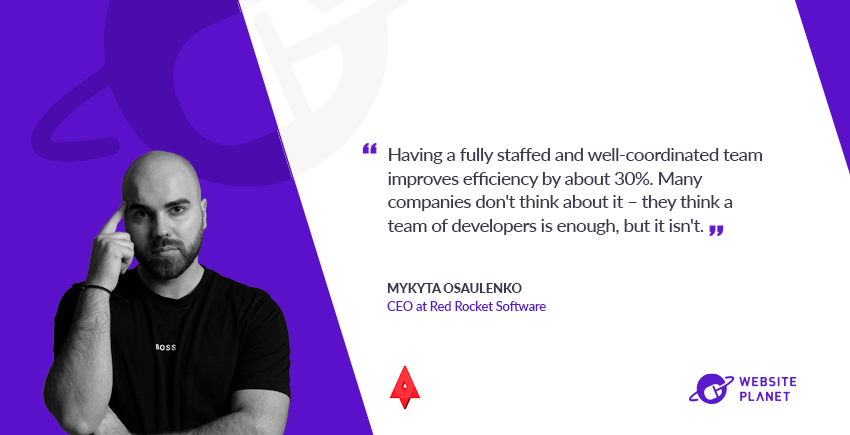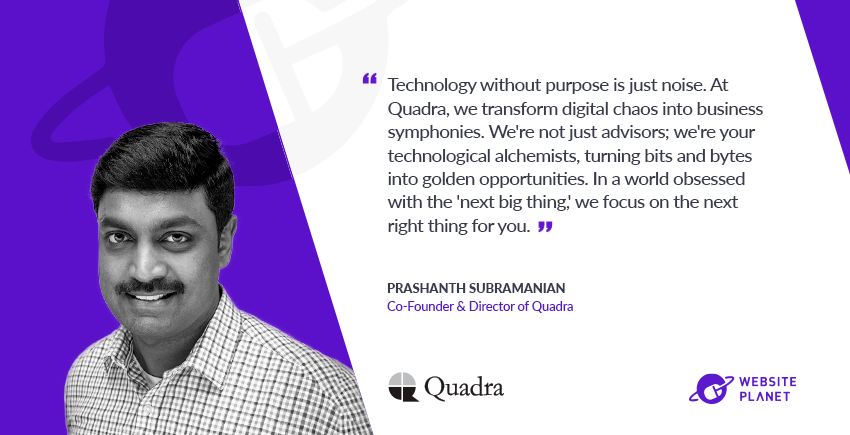Since 2011,
Rootstrap has offered innovative, cutting-edge solutions for their clients. We talked with Patrick Ward, VP of Marketing, to know more about the company, what are their clients and the technologies created and what are the next steps. Check out this special interview for
Website Planet below.
Please present Rootstrap to our audience.
Rootstrap is a custom software development agency, but I always say it means nothing to no-one, so I like to describe us as the tech team behind MasterClass. If someone decided to learn a Gordon Ramsey recipe during the pandemic, that was our technology.
You offer a wide array of services to your clients. What of them is the most sought after?
It tends to focus on the technical side of things: mobile, web development, all sorts of custom software tend to be our bread and butter. We also do some more tangential services, such as quality assurance and DevOps, which are two big focuses for us.
Finally, we have our own innovation studio, which tends to be focused on blockchain and NFT as well as some machine learning consultancy work.
You are present in many countries, right?
The majority of our clientele is US-based, but we also have some clients based in the UK. In terms of team structure, we have people based across the US, Colombia, Argentina, Uruguay and some other countries like Portugal, Costa Rica, India, Philippines.
What are the main challenges working with high profile clients, some of them already having an online presence?
One of the biggest challenges is historical precedence. Tony Robbins was an interesting case: he used to sell a lot of his material in an analog fashion – physical CDs in a seminar. When you engage with a client like him, he is very excited but also very concerned. So, how do we guide him through this process in a way that is the most receptive for him?
This is a really tough challenge with many clients, particularly non-technical clients, because a lot of people don’t really appreciate how software is developed. I compare it to a roller coaster because even the best possible products used on a daily basis have gone through many iterations until getting to that point. It can be scary for a client to realize that an app is not just produced in a couple of months, and that it involves rigorous tests to understand what users see.
That’s a lot of money on the line with software development. We’ve found that the best way to approach these challenges is leading with radical honesty and small, chunked up milestones. To make sure to be very responsive, constantly communicating with clients and bringing them to the process to educate them on the software development routine is part of the challenge, and it’s part of how we engage with clients.
I’m curious about the discovery process you use to speed the launch of ideas and apps.
Discovery is one of these core fundamentals. For us, it is less about understanding the ‘what’ of the build and more the ‘why’. In software development, when a client comes to you, 9 times out of 10 they think they have the right solution, but they might not.
A classic example I like to use is Chelsea Handler. She came to our company and her team said she would like to build an app. Most development shops would just forward the demand, but not us. We dug in and asked those questions throughout the discovery process: we scoped it out and prototyped what an app would look like. We uncovered through that process that she didn’t need an app, she just needed a mobile-responsive website. So, her anticipated cost for a full-scale app went from over 200,000 to 10,000.
You might ask why we’d do that and sell against us. But we take the philosophy that it is better to deliver the right product to the client at the right time rather than fleece them for money. Many competitors often do this, but it is better to build a software product that has demonstrable business value because that is the key to building long-term relationships.
We are very proud of that. In the case of MasterClass, we started with a single developer and now we have over 50 designers and developers working with it. That is a testament to the type of work we do: we make sure to prove value to our clients first, rather than building what they tell us to build.
Generally speaking, when do I know if I need an app or a mobile-responsive website?
There’s a lot of complexity but there are some rules of thumb for that, generally speaking. If you are looking to try a new product or service and launch it to market, it is much better to spin it up as a mobile-responsive website. The fact of the matter is: most business ideas have not been rigorously tested enough to the point they need something as complex as an app.
Having said that, if you are looking for an app, there are some key distinctions of what you’d want to choose when deciding to go forward with an app build, such as if there are complex integrations between different systems or if automation will be a need.
If those sorts of complexities start coming into a non-technical person, that might be a key indicator that you might need to be building an application instead of a website. If I, as a non-technical person, wanted to start a startup today, it would be better to test and iterate and prove that I could get some initial customers for an idea through a mobile-responsive website rather than going to an app without even knowing what my users want. The average consumer uses only 6 apps in their phone daily nowadays. You need to really think if there’s a true business case to create a proprietary app.
What are the next steps for Rootstrap?
The key area we can see ourselves providing value is helping people understand how technology works, how to use it best and how to make sure that what they are building is able to serve humanity rather than go against it.
The key here is about technical expertise as well as emerging technologies. We operate under the thesis that software is going to eat the world, as Andreessen Horowitz said. Based on that, we understand that people are always going to need support, expertise and advice when it comes to dealing with technology.
A lot of the early 2000’s luster of technology creating endless possibilities has lost some of its shine and now we are in a more practical Era, in which people ask what they can actually achieve.
This applies to the emerging technologies and how they can be applied to serve us to do our jobs better, which includes AI, blockchain and NFT, smart contracts, verification of ownership. Logistics and shipping and all the areas that might not seem exciting but help the world go around are where technology is going to the future. While software is an important need right now, it’s increasingly a commodity.
